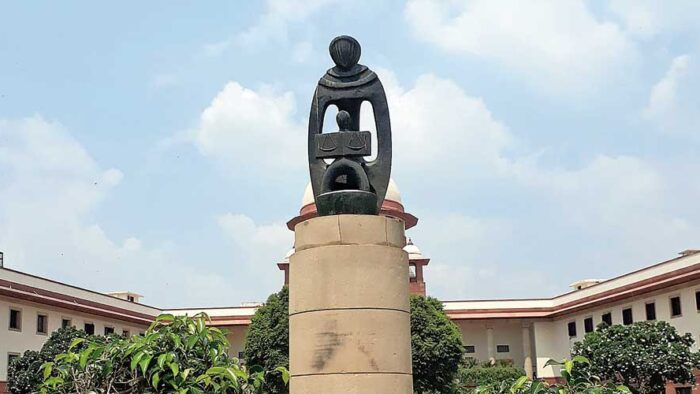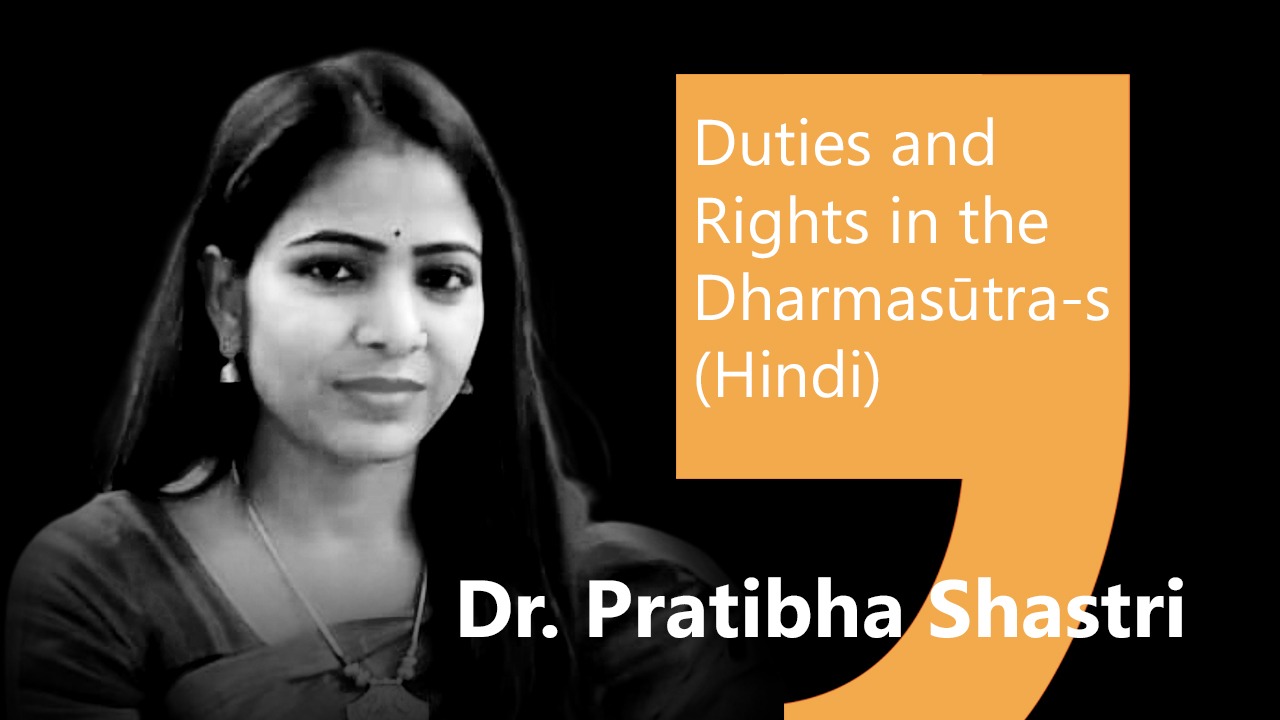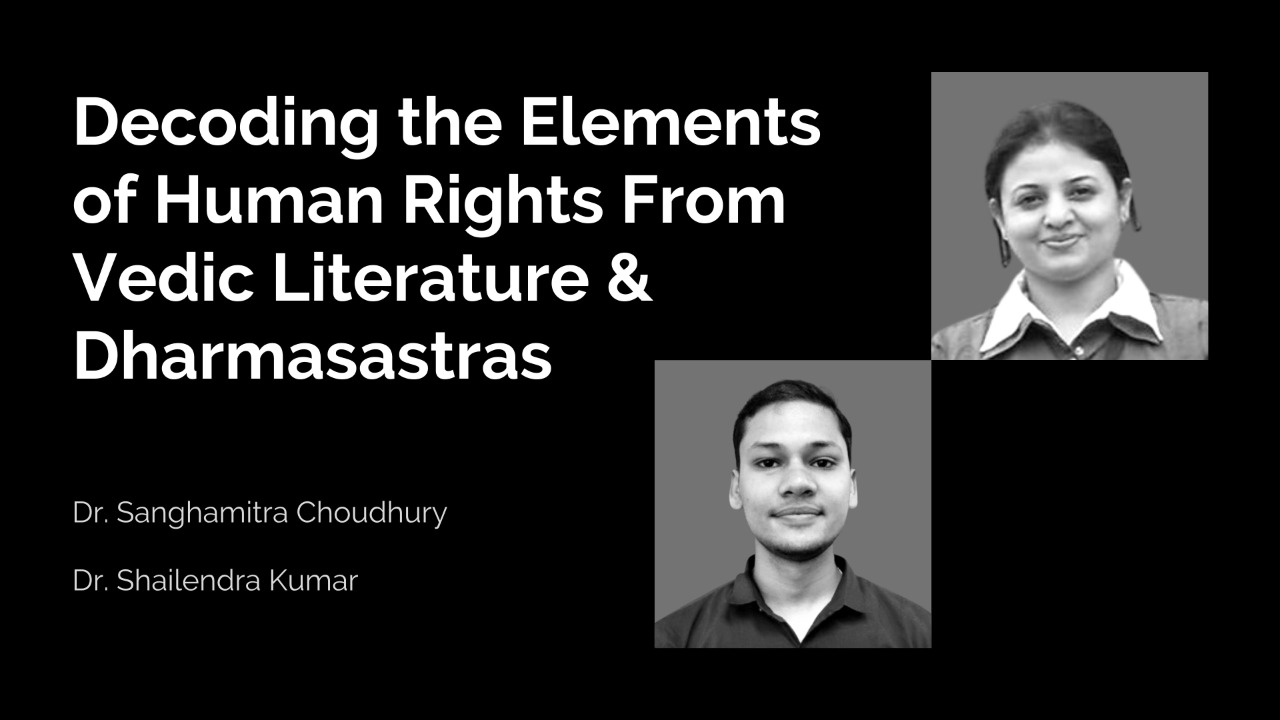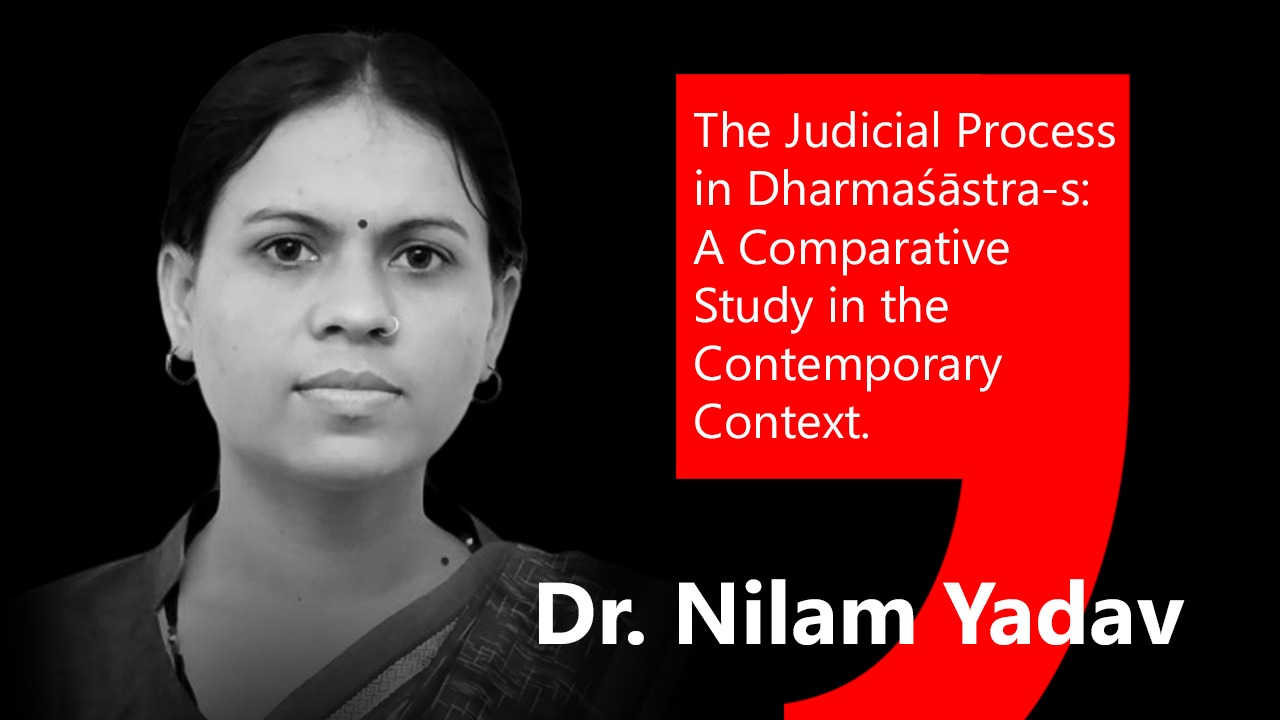Centre for Indic Studies in Law and Justice (“CISLJ”) a collaboration of Indic Academy (“IA”) and Justice Pamidighantam Kodandaramayya Foundation (“JPKR”) was launched in October 2020. The purpose and object of CISLJ is to make Indic knowledge systems (“IKS”) relevant in the field of contemporary law and practice. Colonialism superimposed the western systems of law and governance resulting in IKS being confined to traditional centres of learning. While these knowledge systems survived the advent of new regimes, religions, cultures, and languages in the Indian subcontinent, the mainstream of contemporary education – be it law, political science, sociology, or public administration – remained indifferent and oblivious of these knowledge resources. CISLJ took upon itself to contribute in the field of law and provide a comparative between the IKS and the contemporary concepts of Law as they exist.
With this view, CISLJ was established with the following aims and objectives:
- to be a leading hub of research in legal jurisprudence on its own and through partnership with other Universities & Institutions
- to be a developer of modern techniques for real-time practitioners
- designing and delivering courses to train academics;
- offer programs directly to students by establishing and managing Centres for Indic Studies in Law and Justice at various Universities as well as online courses;
- to build a global ecosystem of institutions and intellectuals committed to Shastras, Law, and Justice;
The annual report of CISLJ for the year 20-21 is given below :
The first project undertaken by CISLJ is the comparative study on the The Indian Evidence Act, 1872 (the “Act”). The project proposed to undertake the comparative study of the jurisprudence, concepts, ideas and definitions as available in the Act and its equivalents in the IKS. Accordingly, CISLJ enrolled lawyers interested in this project and thereafter initiated preliminary discussions on important principles of shastric knowledge in nyayadarshana, vaisheshika darshana, mimansha and other shastra’s. It was interesting to see that the lawyers evinced great interest in these knowledge systems and were surprised to note that comparatives exist and that in some cases, the comparatives in the IKS were far more advanced and detailed than the contemporary systems. At the same time there were certain concepts that had no equivalent in IKS. The initial discussions made certain that a comparative study can indeed be done on any topic/ subject, but at the same time, these discussions also revealed the limitation which the lawyers felt in terms of the language barrier and finding the relevant sources of IKS.
In view of the experience gained with the exposition of lawyers to IKS it became inevitable to find other solutions for undertaking the project. The Centre thereafter experimented with a new approach and started deliberations/ discussions with shastric scholars directly. In the process of interacting with some of the shastric scholars, portions of the Evidence Act were discussed in detail and surprisingly the reaction of the shastric scholars was so refreshing and encouraging that the Centre decided to do it the other way round i.e. instead of Lawyers being trained in IKS, Shastric scholars would be introduced to the Act and made to undertake its study in detail. Having decided to proceed with the project in this manner, the Centre found it necessary to create a structure for administering the project.
The Centre then engaged with Prof. Shrinivasa Varkhedi, Vice-Chancellor of Kavikulguru Kalidas Sanskrit University, Ramtek (“KKSU”). Sh. Varkhedi found this to be an extra ordinary experiment and promised his full co-operation in the project undertaken by CISLJ. Simultaneously, the CISLJ also spoke to Prof. (Dr.) Vijender Kumar, Vice-Chancellor of Maharashtra National Law University Nagpur (“MNLU, Nagpur”) who also showed similar interest and promised his full co-operation. As a matter of fact , there is already an existing collaboration between these two Universities. Finally CISLJ in collaboration with these Universities prepared a vision document to undertake the comparative study of the Evidence Act. The project was named as “The Indian Evidence Act: A comparative study in Indic jurisprudence”.
Prof. Madhusudan Penna from BPVKCIS was appointed as Director of the project along with Dr. Himanshu Pandey MNLU, Nagpur and Dr. Sai Susarla MIT School of Vedic Sciences as Additional Directors on behalf of CISLJ. Sh. Raghvendra Srivatsa, Advocate Supreme Court, K. Parameswar, Advocate Supreme Court, Ila Deshpande, Asst. Prof. MNLU, Nagpur, Sh. Srinivas Jammadamalaka, Sh. Suryanarayana Jammadamalaka, V. C. Shukla, Soumitra Gokhale and Shiva Shastry were invited to be the members of the Executive Committee.
The Committee looked for scholars to participate in the project. These scholars were to be the backbone who would play a vital role in the successful completion of the project. The project identified the following scholars:
- Sri. Sudarshan S. P is a scholar in the disciplines of Vyaakarna and Nyaaya, as well as an expert in the field of Mechanical Engineering.
- Sri. Shrinidhi S. Pyati is a scholar of Nyaaya and Vedanta, having studied under the tutelage of H.H. Shri Vishwesha Teertha Swamiji.
- Sri Dr. C. Hariharan is a scholar of Mimamsa, Krishna Yajurveda and Manuscriptology, as well as Purana-Itihasa
- Sri. K. Ranganathan is a scholar of Nyaya, PurvaMimamsa and Vishishtadvaita Vedanta, having studied under the tutelage of reputed scholar Sri K.E. Devanathan.
- Sri. Srinivas Jammadamalaka is a scholar of Nyaaya, Krishna Yajurveda, Vyaakarna, Advaita Vedanta, having completed the Maha-Pareekshain Nyaaya.
- Dr. Dhananjaya Rao is a scholar and an expert in the areas of Nyaya, Vedanta, Vyakarana and Dharmashastra. He is the Director, Vedic-Vedantic studies and research institute, New Delhi.
- Sri. Suryanarayana Jammadamalaka traditional education covers Krishna Yajurveda Samhita, Vyakaranam and Advaita Vedanta. He has successfully completed the Maha Pariksha in Tarka Shastra (Nyaya).
- Sr.Pt.Rajeswar Deshmukh is a young traditional scholar in the areas of Sanskrit sahitya, Puranas, Vedanga and Nyaya.Heis currently teaching Nyaya shaastra as well as pursuing further studies in Nyaya and AdvaitaVedanta.
- Sri. L Sowjanyakumar is a Shastra Adhyapaka in Sri Jagadguru Veda Kavya Vidya Bhavanam, Chennai. He is an expert in fields of Mimamsa and Krishna Yajurveda.
With a vibrant and scholarly team constituted, the project was formally inaugurated on 23.12.2020 in the auspicious and august presence of Prof. Srinivas Varkehdi, VC, KKSU; Prof. Dr. Vijendra Kumar, VC, MNLU, Nagpur, Padmashali Chamu Krishna Sastry.
The project commenced with a series of lectures/ discussions on the Indian Evidence Act conducted between 28.12.2020 to 05.01.2021. Below is the list of all the sessions conducted:
|
Introduction to the Evidence Act by Sh. P.S. Narasimha, Senior Advocate, Supreme Court |
|
|
Introduction to Relevancy of facts by Sh. Raghavendra Srivatsa, Advocate, Supreme Court |
|
|
Structure of Evidence Act- Witness & Proof by Sh. K. Parameswar, Advocate, Supreme Court |
|
|
Fact in Issue by Sh. K. Parameswar, Advocate, Supreme Court |
|
|
Burden of Proof (Sec. 101-114A) and on presumption by Dr. Himanshu Pandey, MNLU, Nagpur |
|
|
Burden of Proof by Dr. Himanshu Pandey, MNLU, Nagpur |
|
|
About Witnesses by Sh. B.R. Phatak, Advocate |
|
|
About Witnesses by Sh. B.R. Phatak, Advocate |
Once all the scholars were introduced to the subject and nuances of the Indian Evidence Act, they were divided into the following four groups to do the comparative analysis on the issues/ topics assigned to them.
GROUP I
Group I consisted of J. Suryanarayana. Dr. L. Sowjanyakumar, Shri Raghavendra Srivatsa and Shri. Rajeshwar Deshmukh. This Group was assigned to undertake a comparative study on the following subjects/ issues:
- Preliminary (S. 1-3)
- Interpretation Clause – “Court”, “Fact”, “Relevant”, “Fact in issue”
- Relevancy of Facts – (S. 5-55)
- Facts which need not be proved (S. 56-58)
The following are the links to their discussions :
17.1.2021 Presentation by Shri J Suryanarayan and Dr. L Sowjanya Kumar on “Preliminary, Interpretation Clause, Facts, Relevancy, etc.”
24.01.2020 Presentation by J Suryanarayan on “Facts, Relevancy etc”.
01.03.2021 Presentation by J Suryanarayana and S. Parthasarathy on “:Fact and Relevant”.
07.03.2021 Presentation by Shri J Suryanarayan and Shri Rajeshwar Deshmukh on “Facts and Relevancy”.
GROUP II
Group II consisted of J Srinivas and Dr. C. Hariharan. This Group was assigned to undertake a comparative study on the following subjects/ issues:
- Interpretation Clause- “Document”, “Evidence”, “Proved”, “Disproved”, “Not Proved” and “Conclusive Proof”.
- Oral Evidence- S. 59,60
- Documentary Evidence- S. 61-78
- Exclusion of oral by Documentary Evidence- S. 91-100
- Improper Admission or Rejection of Evidence- S. 167
The following are the links to their discussions:
01.02.2021 Presentation by J. Srinivas on “Conclusion Proof”.
22.03.2021 Presentation on “Proved, Not Proved Disproved and Conclusive Proof” by Shri J Shrinivas and Prof. C. Hariharan
GROUP III
Group III consisted of K. Parameswar, K. Ranganathan, S. Parthasarathy. This Group was assigned to undertake a comparative study of the following subjects/ issues:
- Interpretation Clause – “May Presume”, “Shall Presume”
- Burden of Proof- S. 101-114A
- Presumption- S. 79-90A, 111A, 113A, 113B,114,114A
- Estoppel- S. 115-117
The following are the links to their discussions :
14.03.2021 Presentation by Shri Sudarshan Parthasarathy and Shri Ranganathan Krishnan on “Presumptions”
GROUP IV
Group IV consisted of Dr. Dhananjaya Rao, Dr. Shrinidhi Pyati, V.C. Shukla, Advocate Supreme Court and Shiva Sastry as Sanskrit scholar and a law student. This Group was assigned to undertake a comparative study of the following subjects/ issues:
- Witnesses- S. 116-134
The following are the links to their discussion
08.02.2021 Presentation by Dr. Shinidhi Pyati on Witness
28.03.2021 Presentation on “Witnesses” by Shri Shrinidhi Pyati and Dr. Dhanjayacharya
The groups have since submitted their draft reports for further discussion and deliberation. A comprehensive report will soon be finalised.
Simultaneously CISLJ is building a library to enable the Shastric scholars to do their comparative study. Various books on Indian Evidence Act as well as the Shastric texts on Nyaya, Tarka, Mimamsa, Vaisheshika and Dharmashastras are being made available to the scholars. The objective of CISLJ is to build and make available a large library for research and development.
Lectures were also conducted from time to time by renowned scholar. Interaction with these scholars, for example Dean of Sanskrit Studies JNU Sri Shukla on Vyavahara/Dharmashastras was extremely fruitful and helped scholars immensely.
Commenting on the progress made by CISLJ, P S Narasimha, Founder CISLJ said , “This is an extraordinary venture. This is for the first time that traditional scholars in IKS, belonging to the various fields have studied the Indian Evidence Act with its western jurisprudential basis and compared it with their own knowledge pool. This is actually a Indian perspective of the Evidence Act. This kind of a study was never undertaken till date. The comparative study will benefit not only the scholars but will make available to the legal fraternity and academicia the principles, the concepts and ideas in IKS that will be useful for day to day practice of law. This will benefit the adjudicatory systems in India and around the world. “
Encourage by the success in its first project - Project Evidence, CISLJ will soon initiate similar endeavours for undertaking a comparative study on the following topics:
-
- Drafting and conveyance
- Interpretation of statutes
- Methods of argumentation
- Reasoning and its structure
P.S. Narasimha, Founder CISLJ



